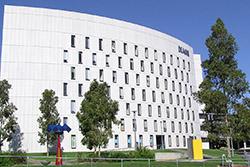
The Applied Artificial Intelligence Institute (A²I²) merges the capabilities of the university’s pattern recognition and data analysis with their software and technology lab to bring together all aspects of AI research and development under one roof.
The aim of the institution will be how to develop AI from fundamental science into commercial products for real-world applications.
Deakin vice chancellor Professor Jane den Hollander AO launched the institution and said that it had an emphasis on developing the partnership between the human user and AI systems.
“The ability of machines to imitate intelligent human behaviour is already part of our lives. Just ask Siri, Alexa or Google. AI is helping hospital trauma centres make faster, better decisions, and researchers develop improved materials for manufacturing,” Professor den Hollander said.
Professor den Hollander said the true potential of AI lay not in replacing human intelligence but in enhancing it.
“Much is made of the potential for AI to replace human intelligence, but AI’s true potential lies in its capacity to enhance human abilities rather than replace them.
“We’re not building robots to take the place of humans, but we are creating technology that will work alongside people to help them make more informed and better decisions,” she said.
Deakin university affirmed its commitment to the technology community and said there was over 100 staff members working on multiple projects that would ensure that communities are prepared for the jobs of the future.
“The depth of knowledge allows the institute to construct new AI concepts then build and test these concepts in real world environments to determine their actual value,” she said.
Already the institute is working on a trauma reception and resuscitation support system to assist trauma teams and with Dementia Australia to develop new approaches to health training.
“A²I² will partner with industry to drive development of AI and help transform local communities and train the next generation for the jobs of the future,” Professor den Hollander said.





